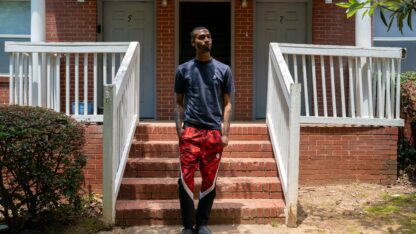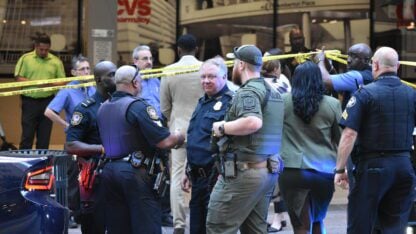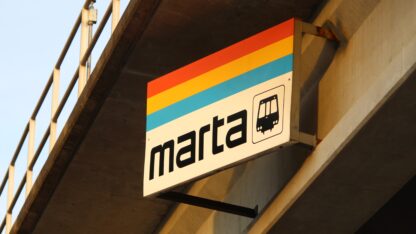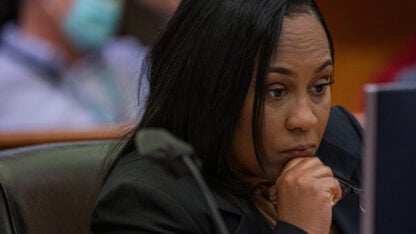As water main repairs continued around Atlanta and large swaths of the city went without drinkable water, signs appeared on the Beltline over the weekend asking, “Has anyone seen or heard from Mayor Andre Dickens?”
Several days into the ongoing water disruptions, Dickens continues to face questions and criticism over his initial public response to the emergency.
The mayor issued a public statement nearly 24 hours after the city announced the first water main break on Friday. Text messages notifying residents about the boil water advisory from NotifyATL, the city’s mass emergency messaging system, did not go out until after noon on Saturday, nearly 21 hours after it first went into effect.
A map showing the affected areas was blurry and hard to read.
“I will be candid that overnight, we did not do the best job of communicating,” Dickens told reporters on Saturday. “We could have done a better job over the past day. And for that, I apologize.”
Dickens had traveled to Memphis on Friday for meetings and a campaign fundraiser. Press Secretary Michael Smith says Dickens remained in communication with his leadership team and flew back to Atlanta on Saturday morning.
“When Mayor Dickens left Atlanta, the consensus was that the water main break was similar to the roughly 530 breaks or leaks that the City of Atlanta experienced over the last 12 months,” Smith wrote in a statement. “It was not until late Friday evening, after repairs had been attempted, that the city learned the severity of the breaks.”
Dickens has already been facing regular protests from critics of the Atlanta Police Training Center, which opponents call “Cop City.”
At a Monday Atlanta City Council meeting, Council Member Liliana Bakhtiari pressed city officials about the lack of communication during the first 24 hours of the outage.
“A lot of my constituents were asking me questions of ‘Where’s Notify ATL?’ and then, ‘Why was it giving outdated information?’ And then, ‘Why was it only emails because a lot of seniors don’t have internet, so why aren’t they getting texts?” she told WABE before the meeting.
“A lot of it’s going to be around why the websites were crashing, why the administration take 24 hours to put out information?”
LaChandra Burks, the city’s chief operating officer, acknowledged the gaps.
“If there’s one area we probably could have done a better job in, it’s communications,” Burks told the council. “Sometimes you get so ingrained in the issue, and you’re working so hard on it that you don’t communicate as you should… We have owned that, and the mayor has openly apologized.”
Dr. Stephen Murphy, who directs the Disaster Management Program at the Tulane School of Public Health and Tropical Medicine, says the top three tenets of crisis communications are being first, being right and being credible.
“When you have a public that is yearning for information and they’re not getting that thirst quenched very well, you run the risk of damaging trust,” Murphy says.
Murphy, whose experience runs the gamut from hurricanes to infectious disease outbreaks and oil spills, says misinformation can fill information voids.
He says agencies should be transparent, underpromise and overdeliver. They should also have plans in place to ensure information is reaching the most vulnerable communities who may not be refreshing the local watershed management website every hour.
“You cannot delay that initiation,” he says. “You can’t take the risk of it becoming a public health crisis, with people in the middle of brushing their teeth, or maybe an hour goes by, and their elderly parents or young children have taken several chugs of water.”
On Monday evening, a boil water advisory has been lifted for the areas affected by the water main break at Joseph E. Boone Boulevard & J.P. Brawley Drive.
However, the boil advisory remains indefinitely for the parts of Midtown affected by the water main break near West Peachtree & 11th Street.









